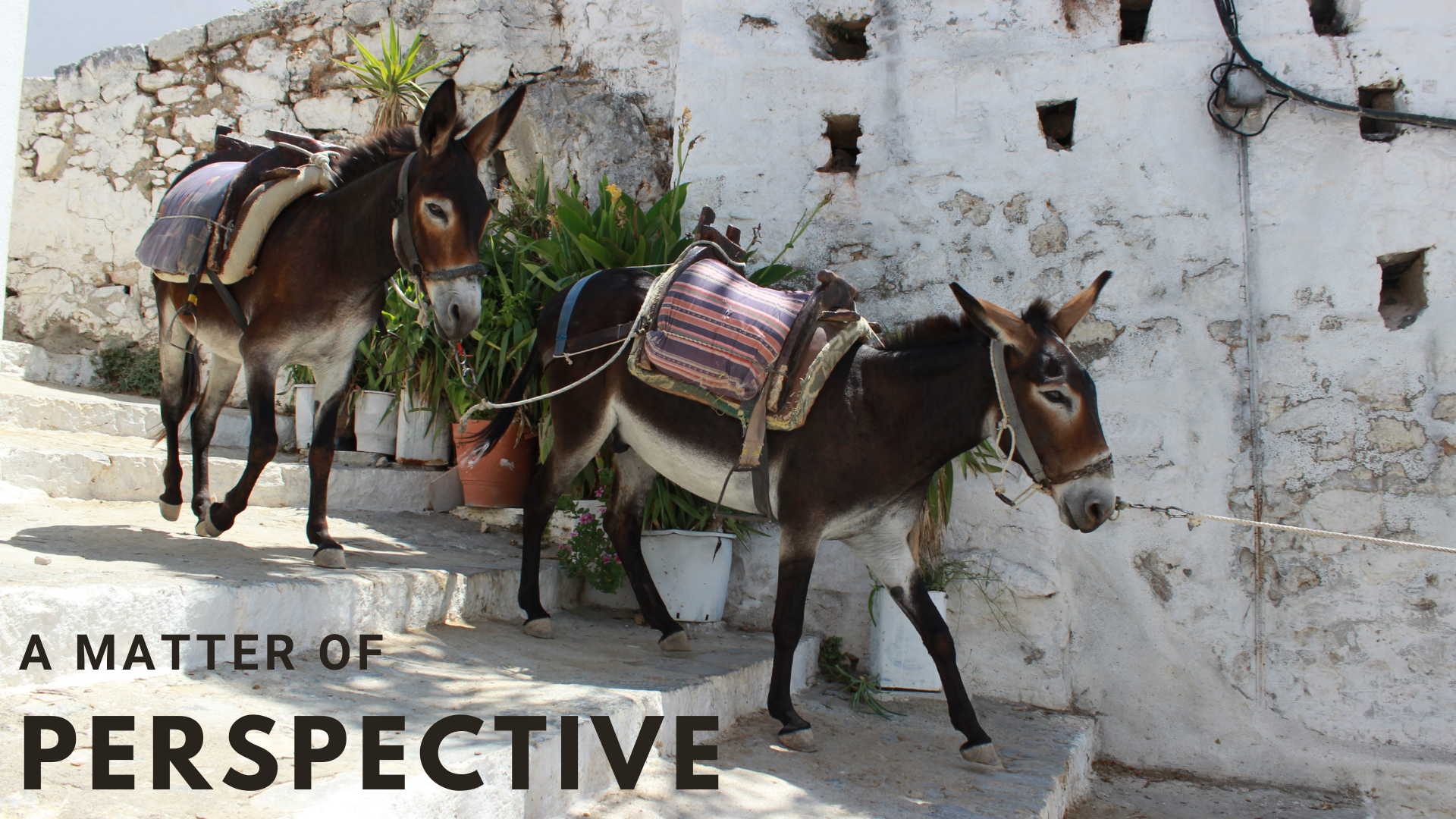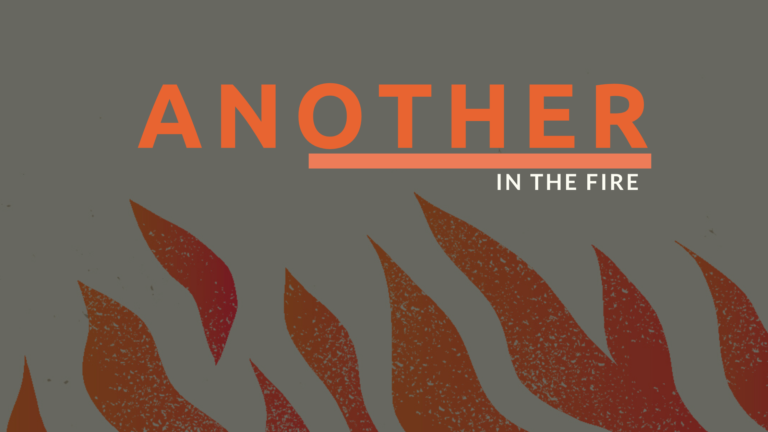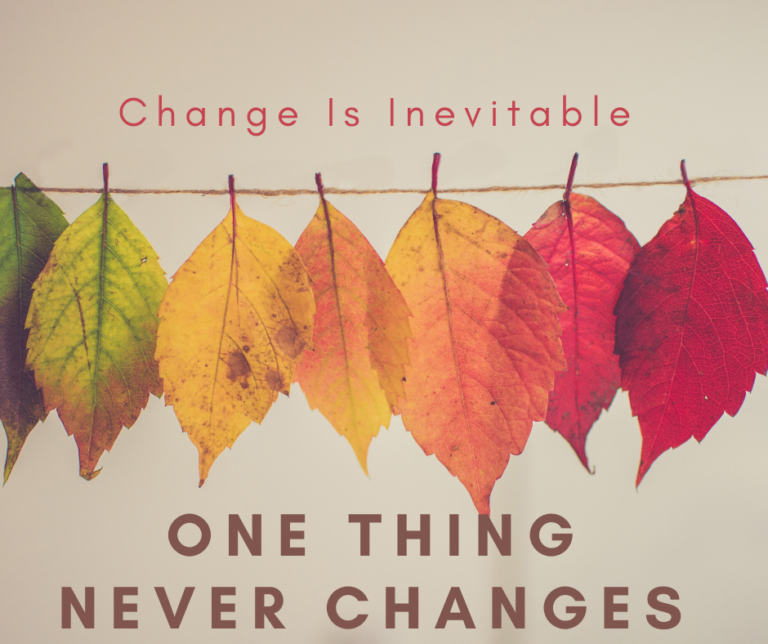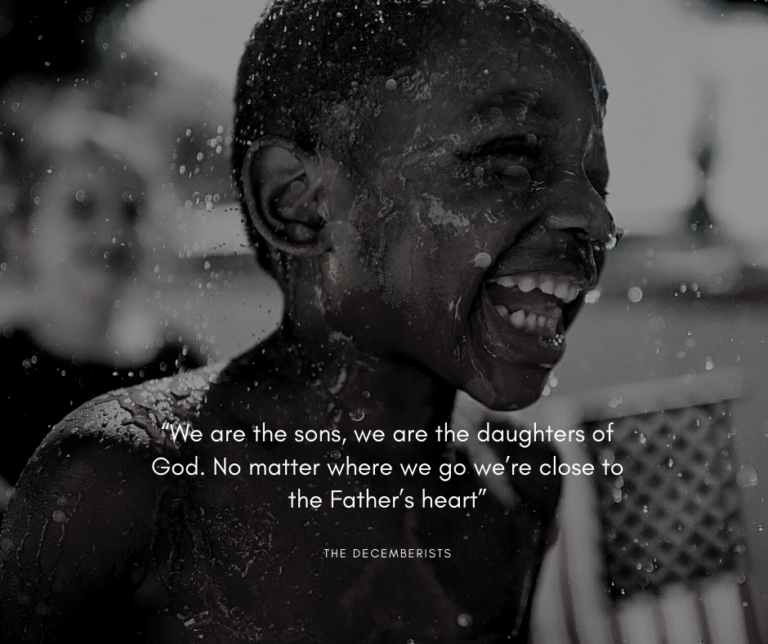Submitted by A worker in North Africa:
There’s nothing quite like getting stuck behind a donkey when walking thru the medina. And it’s actually quite easy to do when the streets are really only as wide as a heavily-laden donkey and his owner. Sometimes the baskets that are strapped to the sides of the donkeys are crammed so full, and the alleyways are so narrow you can actually hear them scrape down the walls with the animal’s every step. And in the medina there are no passing lanes.
Doesn’t matter how late you are for class—you ain’t getting around those suckers. In fact, one of the unspoken
rules here that my girls and I very quickly picked up on is if it’s bigger than you, it has the right- of-way. And you are almost always late for something when you find yourself stuck behind one of these work “horses.” Which means something else has probably already happened to shift your mind into a less-than-tolerant state before you find yourself crawling out of the alleys at a maddeningly slow pace.
And it is also almost always raining. You think “wet dog” is an assault on the nasal passage? Dogs don’t have anything on “wet donkey.” Especially not “wet-donkey-carrying-baskets-full-of-medina-trash.” And if it’s raining, it’s also probably really cold. So you are walking through the cold, muddy medina streets, teeth chattering, trying desperately to breathe through your mouth, at a snail’s pace, falling further and further behind in your day.
There’s really nothing like getting stuck behind a donkey when walking thru the medina. To pass the time, I find myself thinking about how I’ll explain my tardiness to my language tutor, because she will, of course, ask. After I exhaust the small amount of vocabulary I have trying to formulate an answer and after I smile at the image of me pantomiming the words I don’t know to her, I begin to wonder what my professors at Truman State would have said to this excuse for coming in late. Having a baby early in my university education provided me with many unique excuses (“Sorry sir, I was on my way out the door when I discovered my daughter had removed her own diaper and smeared poop all over the walls of her bedroom…”) but I bet I would have been the first to use the ol’ “I got stuck behind a donkey” trick… Try not smiling wryly while you say that out loud…
We find ourselves smiling wryly often, as crazy-sounding things come out of our mouths. It’s really an incredible thing, actually, to live in city that’s over 1,000 years old and has managed to modernize enough to be livable but has not adapted itself to accommodate vehicles. In a city with no cars, the donkeys (smelly as they may be) have become extremely valuable animals. It is on a back of a donkey that the large gas canisters that power my oven and my treasured hot water heater are hoofed into the medina. Even more importantly, it is because of these special animals that many of the goods we need for life here are available for purchase on a daily basis from the shop beside our house—things like milk, and diapers, and most importantly my beloved Coke products.
And it’s these amazing hard working animals that haul 1,000’s of grocery bags full of trash out of the walled city every night so that we aren’t stuck living in our own filth—something that would happen quite quickly with 700,00 people living literally on top of each other in an enclosed space. In fact, I’m pretty sure it’s the donkeys and their hardworking humans that make
this medina one of the cleanest cities in Africa I’ve ever had the privilege to live in.
And what a privilege it is…As an American, a relative newcomer to the global stage, I in particular stand in awe of anything that has more than a couple hundred years of history. When stories are dated before the 1800’s, my brain begins to lose the ability to grasp just how much l-i-f-e happens in time spans; The number of feet that have walked these very streets; The number of children that have been born and raised within these walls; The trillions of meals cooked over hundreds of different kinds of heat sources; The stories and “I love you’s” whispered within the plaster of the homes in who knows how many languages; The millions who over the years have called this place “home”—the ranks of whom we are trying to join. We are quick to think in terms of time—of years of history and minutes of lost time.
And it’s so tempting to become frustrated on both the macro and micro levels. How many hundreds of years has this city been a stronghold of Lies? How many dozens of decades has it been under this particular religion’s rule? How many years have our partners labored with little result? How many months and years will we be here before we see the Spirit’s movement? And how many interminable minutes am I going to be stuck behind this donkey!?!
But our Father does not think in time—He works in terms of lives of people. And at the end of the day the privilege of living here, of working here, of falling in love with this place and her people is not hampered or threatened by the passage of time and neither are the promises of the Word. The Father has a plan for His ancient cities.
The prophet Isaiah gives us hope when we are tempted to get wrapped up in our human perception of wasted time: “And our ancient city ruins shall be rebuilt; you shall raise up the foundations of many generations; you shall be called the repairer of the breach, the restorer of streets to dwell in.” (58:12) Our hope is to see the day the Great Rebuilder reclaims this city—we long to know our role in that. And in the cold, rainy minutes that continue to pass in the meantime we try to remind ourselves of this truth:
How cool is this? We live in the ancient city!
You know, there’s really nothing quite like getting stuck behind a donkey when you are walking thru the streets of the medina…”






